When Can Babies Drink Water
38 hours of research 5 minute read

Water consumption is crucial for good health and well-being. At birth, babies have the greatest percentage of bodily water, at around 78%. By age 1, that proportion falls to roughly 65%. Although it may seem unusual to not give water to your infants at an early age, there is solid proof that babies shouldn't drink until they are roughly six months old. According to the World Health Organization (WHO), a reliable source, breastfed newborns do not require supplemental water because breast milk contains more than 80% water. Bottle-fed children will maintain proper hydration thanks to their formula. As long as your child is getting enough nutrition, whether, from breast milk, formula, or both, their level of hydration shouldn't be of concern.
When Can You Start Giving Your Baby Water?
All of the hydration a baby needs up until the age of six months comes from breast milk or infant formula. Babies can start drinking water in addition to their normal milk feeding at six months.
Babies only need breast milk or infant formula for the first six months of life since these sources give them all the nourishment and hydration they need.
Babies can start drinking water in moderation at the six-month mark, but milk feedings should always come first. Babies should receive their major nutrition from breast milk or formula until they are 1 year old.
According to the Centers for Disease Control and Prevention (CDC)Trusted Source, parents can start giving a newborn 4-8 ounces of water when the child is 6 months old.
Babies can also begin eating solid foods at this time. Many infants can learn to hold a sippy cup and bring it to their mouths at this age. Around this time, they also start to learn how to support their sitting up.
How much water are infants supposed to consume?
From day to day as well as from one baby to another, water needs can vary significantly. The demand for hydration might depend on elements like the weather and degree of activity.
Baby water consumption table - as a rough guide:

Water consumption for infants from 6 to 12 months of age
Water can be introduced to your baby when he or she is old enough to receive pureed meals.
A baby's milk consumption decreases from a range of 30 to 42 ounces per day to roughly 28 to 32 ounces per day once solids are introduced around 4 to 6 months, according to the Children's Hospital of Philadelphia (CHOP).
Everything depends on how solids are introduced, the kind of solids presented, and the frequency at which they are consumed. The objective for infants between the ages of 6 and 12 months is to guarantee optimal nutrient intake and general growth.
Introduce solids gently and over several exposures to accomplish this goal. Water can be added as a supplement at this time. But given a sufficient intake of formula or breast milk, your infant might only require 2 to 4 ounces of water in a 24-hour period.
Traditionally, water is introduced via a sippy cup. You might discover that giving your child more water on occasion at this stage is beneficial as they get more active.
Water for Toddlers ( 12 months and up)

If possible, limit your child's daily milk consumption to no more than 16 ounces once they turn 12 months old. You may have developed a breakfast, lunch, and supper routine at this point while also introducing a variety of new foods. Water consumption will inevitably rise as a result of your child's increasing activity, the reduction in milk consumption, and the variety of foods consumed.
An 8-ounce cup of water should be consumed daily by a 1-year-old, according to the CHOC Children's Hospital in Orange County, California.
Every year, this sum rises. An older child should drink no more than 8-ounce cups per day appropriate to their age. (eight 8-ounce cups per day, maximum). For illustration, a two-year-old should drink two 8-ounce cups daily.
Maintaining healthy bowel motions and replacing any lost fluids can both be aided by staying hydrated.
Advantages of providing water to your infant
Water aids older infants, 6 months and older, stay hydrated, which:
- Carries nutrients and oxygen to cells while assisting in waste removal.
- lubricates tissues and joints
- keeps blood volume stable
Choosing Organic Baby Formulas for Hydration
Since breast milk or formula are the source of nutrition and hydration for babies before 6 months, it's important to choose a quality formula for your baby to ensure they receive optimal nourishment. Below are trusted organic baby formulas many parents opt for during this critical period. These formulas not only provide essential nutrition but also serve as an excellent alternative to breast milk when necessary, ensuring your baby receives optimal nourishment as they transition into different stages of development. Among these options are HiPP Dutch, Holle Goat Dutch, and Kendamil Organic. Each of these formulas is crafted with care, using high-quality organic ingredients to support your baby's health and well-being.
✓ 100% Organic Formula
✓ Essential nutrients for baby's hydration
✓ HiPP's most popular formula
Check PricePopular With Parents Because: HiPP Dutch is specifically designed to balance nutritional intake with age-specific whey and casein ratios, mirroring the same style of hydration a baby receives through a mother’s natural breast milk.
✓ Demeter certified (Organic++)
✓ Gentle hydration with goat milk formula
✓ Easy digestion, suitable for allergies
Check PricePopular With Parents Because: Holle Goat Dutch is a trusted alternative for parents seeking a gentle formula for babies with cow's milk sensitivities. Made with gentle goat's milk, it offers easy digestibility while ensuring proper hydration.
✓ Full cream nutrition for baby's hydration
✓ Vegetarian-friendly (Contains Plant-Based DHA and ARA)
✓ EU and British Soil Association Certified Organic
Check PricePopular With Parents Because: Kendamil Organic is beloved by parents for its commitment to wholesome, organic ingredients and sustainable practices. Its gentle formula, free from palm oil and GMOs, supports healthy hydration levels, making it an ideal option for parents as they introduce water to their baby's diet.
Early water introduction to a baby might be risky
Because of the following risks very young babies shouldn't drink water:
- A deficiency of nutrition. The vital nutrients that come from breast milk and formula feedings are lost when babies use bottles of water to quench their thirst and fulfill their urge to suck.
- Slow weight gain. Your baby is not consuming a lot of food if she regularly drinks water in addition to breast milk or formula. That eventually translates into your kid not getting the calories she requires to gain the proper amount of weight.
- Low milk production. Since babies that drink a lot of water will nurse less at the breast, if you're nursing, you may eventually see a reduction in your milk production.
- Unbalanced electrolytes. A baby's blood electrolytes (such as sodium) might become diluted if you let them drink a lot of water, which can cause water intoxication, a potentially deadly condition. This may have an effect on a baby's typical bodily processes, causing symptoms like seizures.
What can cause babies to get Water Intoxicated?
A disease known as hyponatremia, or "water intoxication," occurs when the sodium content in the blood falls excessively low. This condition may result from excessive water consumption.
A newborn under the age of six months who is given water may be at risk for this illness.
Signs of hyponatremia in babies include:
- Nausea/Vomiting
- Headache
- Confusion
- Drowsiness
- Irritability
- Seizures
Water intoxication necessitates immediate medical attention and may be treated with intravenous electrolytes or medicines. If you detect any of the aforementioned signs or symptoms, or if you have any worries regarding water intoxication in your infant, get in touch with your kid's doctor.
Even though it can seem safe to give your baby water, waiting until your child is six months old is advised. Your baby is consuming breast milk or formula to meet all of her nutritional and hydration needs.
Should a baby have water when it is hot weather?
If your infant is under six months old, it's crucial to provide breast or bottle feedings more frequently during hot weather. If a doctor hasn't suggested it, don't offer water. Your infant could want to drink more frequently but for shorter amounts of time. You should make sure to get adequate water if you breastfeed.
In order to improve breastfeeding comfort for both you and your baby in hot weather:
- Put anything between you and your child, like a towel, sheet, or pillowcase.
- Lie down to breastfeed to reduce skin contact.
If your baby has 6 to 8 pale, wet diapers in a 24-hour period, they are appropriately hydrated (receiving enough fluids).
If a baby has a fever, should they drink water?
You might need to provide more breastfeeds if your infant is breastfed, under the age of six months, and has a fever. You can feed them smaller amounts of formula more frequently if they are under 6 months old and formula-fed. Never offer water.
Continue to breastfeed or bottle-feed your infant if they are older than six months. Between feeds, you can provide water. When they have a fever, many kids don't want to eat. As long as they stay hydrated, this won't be an issue. Making sure your youngster is drinking enough water is the most crucial thing to do.
Does a baby who is dehydrated need water?
Note that your infant is more likely to become dehydrated if they have conditions like fever, vomiting, and diarrhea.
The following are indications of dehydration, according to the American Academy of Pediatrics:
Moderate to mild dehydration in babies
- Fewer activities than normal
- Fewer than six diapers that are wet per day
- Fewer saliva or chapped lips
- Dry-eye crying
- The head's soft spot is sunken.
Extreme dehydration (with all of the symptoms mentioned above)
- Too fussy or sleepy
- Recessed eyes
- Hands and feet are cold and discolored
- Creased skin
- 1-2 wet diapers in a 24-hour period
- Dry mouth and tongue
- Absence of tears when crying
When should babies start using a drinking cup?
At around 6 months old, when they begin eating solids, babies can start using a cup. Most feeding professionals advise beginning with an open cup or a straw cup since they help children build stronger eating and chewing muscles. Babies will continue to refine their cup-drinking techniques as they get older.
How should I provide water to my infant?
During meals and snacks
When feeding your infant at meals and snacks, start by giving them modest quantities of water. This enables your infant to begin learning cup-drinking abilities and adapting to the taste of plain water. It's advised to limit water intake to no more than 1 to 2 oz at a time to avoid replacing formula or breastmilk. Until your infant is taking larger meals, stick to the lower end of the range.
In a sipping cup
Giving babies water in a cup enables parents to teach them life skills like using a cup or straw to sip. Choose cups that are the right size for their small hands, and don't be hesitant to assist them if they need it. As your infant becomes adept at sipping from a cup, start with little amounts of water and work your way up.
Incorporate foods
Your kid gets some of the water that they need from fruits, vegetables, and anything else that is liquid at room temperatures, like popsicles or soup. You could think your kid isn't drinking a lot of liquids at times, but if you also check their food consumption, you might find that they are.
In a popsicle or smoothie
A fun method to provide water and explore new fruits and veggies is to make smoothies or popsicles at home. Because you can fit a lot in a tiny amount of volume, they can be especially helpful for babies who require more calories or nutrients.
On a daily basis
You can start making water more often available when your infant becomes one year old. Set up a cup in the dining area or play area and let them know they can use it as needed.
Can my infant drink other beverages?
Can babies drink distilled water?
Distilled water is purified through a specific process, which removes minerals and impurities. While it's generally safe for adults, it's not suitable for babies, especially those who are 6 months of age or younger except when used for preparing infant formula.
Can babies drink alkaline water?
While alkaline water is a popular choice among adults, it's not recommended for infants, especially those who are 6 months of age or younger. Infants in this age group have specific dietary needs, and introducing alkaline water may disrupt their delicate balance.
Can babies drink coconut water?
Coconut water is a natural and hydrating beverage, but it's best to wait until your baby is at least 6 months old before introducing it. Even then, it should be offered in moderation, as it can be high in natural sugars.
Soft drinks, cordial, and fruit juice are not advised for infants under 12 months of age. Children of any age should not consume caffeinated beverages including alcohol, tea, coffee, and energy drinks.
Advice on how to stay well hydrated
Most kids will drink enough to satisfy their needs if you just provide them with regular access to water. Try these additional suggestions to make sure your child is adequately hydrated if you're having difficulties getting them to drink water from a sippy cup.
Encourage little sips often
Water should be provided intermittently throughout the day. Your youngster won't feel satisfied from eating because they won't be sufficiently hydrated.
Limit their daily intake of pure fruit juice to 4 ounces if you use diluted juice.
Make drinking water enjoyable
Shapes and colors appear to pique young children's interest. In order to make your children enthusiastic about drinking water, you may utilize colorful glasses and creative straws.
Observe the environment and activity
Kids have a tougher time recovering and cooling off since they can't control their body temperature as well as adults do. Encourage drinking water prior to, throughout, and after the activity.
Encourage drinking at least 4 ounces of liquid every 20 minutes or whenever a pause occurs as a general rule. A typical "gulp" from your child is equivalent to around one ounce of water.
Include watery foods
Foods high in water include soups and fruits like grapes, oranges, and watermelon. To make water more interesting and pleasant, you can also add lemon, lime, cucumber, or orange flavors.
Consult a physician
Call your child's doctor for advice on how to keep your infant hydrated if he or she has diarrhea and/or is vomiting. If your child exhibits any signs of dehydration, you should also phone the pediatrician.
Finally, refrain from giving your infant fruit juice until they are at least one year old, if not longer. Juice not only fills up your baby's tiny stomach, making less room for milk and food, but it also contains sugar, which can make young babies' tummies hurt and make them throw up.
Can Babies Drink Water
At six months old, your baby might be prepared to take their first drink of water. The hydration needs of newborns, babies, and toddlers are substantially different from those of adults, thus it's crucial to understand this. They would be encouraged to behave very differently than humans would in hot weather or while engaging in physical activity. After your child turns one, as long as you monitor their activity and provide them plenty of access to water, you'll make the right choices.
Top 3 formulas for babies who drink water
Organic Life Start is committed to providing accurate, reliable, and trustworthy information to parents and caregivers. We carefully choose credible sources and follow a meticulous fact-checking process to uphold the highest standards in infant nutrition and parenting advice. To learn more about our dedication to accuracy, please explore our editorial guidelines.
Link To Sources


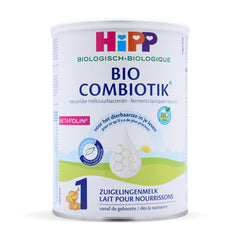
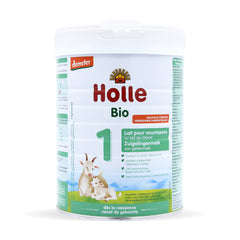
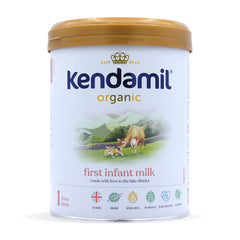
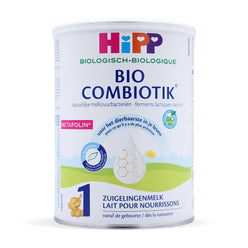
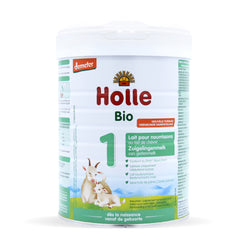
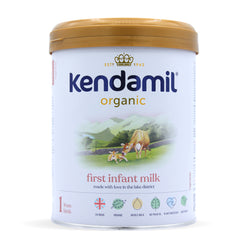
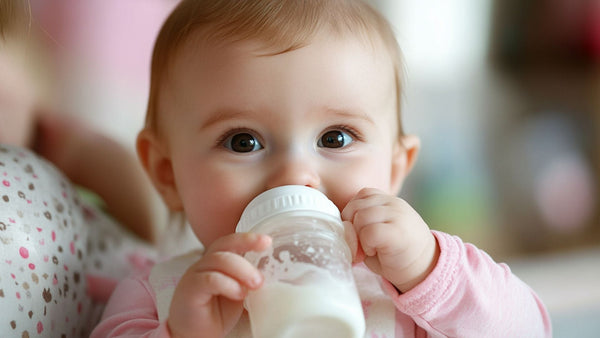
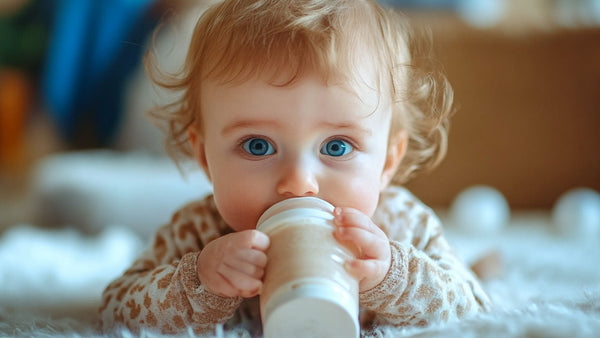

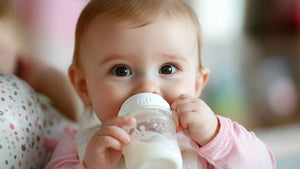
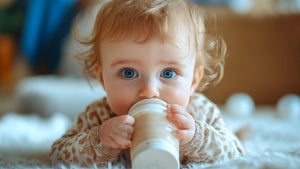
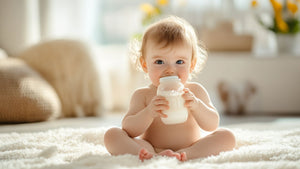
Alonzo Gall -
I always thought a few sips from birth were fine, but now I understand why it’s best to wait until around six months.
Valery Dowd -
December 11, 2025
Alongside my baby’s HiPP HA, we have introduced him to drinking water. It was a difficult adjustment at first for some reason but after persistence and patience, it all worked out.
Ashlynn Blaylock -
November 13, 2025
I’d love to know more about how much water is safe for babies at six months—sometimes it’s tricky to get the balance right without overdoing it. Any tips from parents who’ve started this would be so helpful!